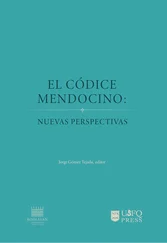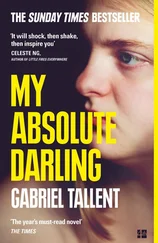It’s not really there, is it, such stupidity, on the tip of her tongue? Yes it is — (she’s drunk) — but wait, she’s saved, struck dumb by a voice.
The voice can’t be described as
honeyed
It doesn’t intend to flatter. Neither gratitude nor the least career-driven taint of ingratiation figures in its tone. It belongs to the woman at Clio’s left, whom Clio has managed, since seating was reshuffled for dessert, not to notice. Such gaps or rifts in social obligation are the prerogative of charisma, with its sexy, butterfly-alighting attentiveness, its abrupt, invigorating
rudeness, the masochistically satisfying cold shoulder turned toward any less-than-stellar presence. Remorsefully, Clio concedes (as perhaps the voice, fractionally wounded, implies) that in doing so she has been ignoring beauty.
Q: Briefly explicate Rilke’s lines, “All of you undisturbed cities / haven’t you ever yearned for the Enemy?”
A: When that voice says, “Selfish us, we’ve kept you up too late. You’re tired,” Clio, not yet ready to confront the source, steadies the bowl of her wineglass between two fingers and a thumb, observing the rhythm of her pulse in the concentric wine rings. The voice qualifies, thoughtfully, “No, sad ,” italicizing with the pleasure of nailing emotion to its right name, and for this ventured precision, Clio feels the agitated relief of the solitary, whose emotions, seldom articulated for another, mostly live and die nameless. Immediately following relief comes panic, not an unusual progression, for there’s no panic quite like the panic of having found something you’d hate to lose. Now we come to that oddly asocial moment when the inkblot of private gesture, proof of exigent emotion, stains the unfolding social contract: Clio can’t look at this woman. Not yet. Realizing it must appear rude, she closes her eyes. A person whose composure is not only a professional asset but an actual cast of mind may become a connoisseur of her own panic, just as, for a Japanese gardener, the chance scatteration of cherry petals on freshly raked gravel beautifully illumines the futility of control: so behind her closed eyes Clio experiences, as counterpart to panic, exaltation. The Enemy!
Q: The absurd and the erotic are mutually exclusive modes of perception. That is, no love object can be both ridiculous and beautiful. True or false?
A: The voice’s owner, perceiving an invitation in Clio’s half-empty glass, leans in with the bottle, startling Clio, whose closed eyes have prevented awareness of her proximity. Clio jumps, diverting the airborne artery of wine, which leaps about, bathing her wrist, spattering her dessert plate, splashing from the table’s edge into her black silk lap. The voice’s owner fails to right the bottle until wine rains from the table’s edge, pattering into flexing amoeba shapes on the polished floor, the voice’s owner apologizing manically — yet as if she anticipated some need for apology? — and setting the bottle down with a thump. I’m so so sorrrrry. It is Clio’s lap that the voice’s owner bends toward, still uttering wild sorries , so that Clio’s first image of her is of her hair, red and in torment, copious, strenuous, anarchic hair, writhing, heavy, ardent, gorgeous hair tricked into confinement, knotted at the nape of a neck so smooth and white its single mole seems to cast a tiny shadow. The tip of Clio’s tongue so covets the mole, which stands out like one of the beads of Beaujolais stippling her wrist, that she scarcely experiences the swabbing of the napkin at her lap — thus, for the sake of the imagined, missing out on the thrill of the actual, and immediately repenting this, the first loss within the kingdom of true love.
“This is
so
not working,” says the woman, turning to blot at Clio’s wrist while Clio memorizes every detail of the profile of her future. Too much forehead, baldish and vulnerable-looking, as is often true of redheads, a long nose with a bump at its tip, the smart arch of the lifted eyebrow, thick eyelashes
dark at their roots, fair to invisibility at their tips. A fine chin. A neat and somehow boyish ear exposed by the tension of the trammeled hair. Why boyish? Unearringed, Clio notes, not even pierced, a sexy virgin petal of lobe. Under the fine chin, the hint of a double, a faint softening in a line that should ideally run tensely along the jaw to the downcurve of the throat. This is true of redheads as well, Clio thinks, this appearance of laxness in certain secret places, as if the body, where it can, resists the severity of the contrast between pale skin and vivid hair, and asserts a passivity, a private entropy, counter to the flamey energy of red. Clio is forty-two to the other’s twenty-something: fact. Fearful fact.
“Don’t worry, we can get you cleaned up,” says the younger woman, “so come on,” standing to take Clio’s wrist, leading Clio down a long and shadowed hallway, the din of apologies — everyone’s, chorused yet random, like Apache war cries — fading behind the two of them, then gone entirely, Clio surrendering to the sexiness of being
led
, for the other hasn’t released her wrist and hasn’t turned around, and for the length of that fatal hallway Clio obediently pursues this most unexpected of persons, the Beloved. Under Clio’s hot gaze the knot of passionate hair at the Beloved’s nape, screwed so tight in its coil, releases red-gold strands flaring with electricity.
Q: The following quotation is taken from Wittgenstein’s Philosophical Investigations:
. . a face which inspires fear or delight (the object of fear or delight) is not on that account its cause, but — one might say — its target.
Discuss.
A: Prof. Mitsak’s new condominium comes with its own scrap of California, backyard enough for two spindly fruit trees, a futon of gopher-harrowed turf, and an inherited compost heap. It’s still winter, the trees’ tracery of bare branches unreadable as to kind, but Prof. Mitsak thinks of them as plum trees because sex, for her, was born with a theft: of her grandmother’s plum jam, the old woman watching, from the corner of an eye, the child’s fingers crooking over the jar’s rim, sliding into lumpish, yielding sweetness, the old woman giving the plaintive laugh peculiar to that kind of vicarious delight, witnessing a pleasure one essentially disapproves of, which costs one something — in her grandmother’s case, a steely domestic rigor and a wicked Methodist conviction about the virtue of self-deprivation.
It will be spring by the time the trees, if their blossoming proves they’re not plum, can disappoint Clio, and by spring she hopes to be eating and sleeping again, done with writing and rewriting letters, actual, insane, ink-and-paper letters that she never sends, done with twisting herself into yoga asanas meant to impress the younger, suppler Beloved, who will never observe her contortions. In Clio’s previous experience of heartbreak, she’s been its cause. On heartbreak’s receiving end, she proves hapless, self-pitying, wincing, vindictive. A forgetter of goddaughters’ birthdays, a serial umbrella-loser. Winter rains down on her head, pelting her with the icy spite of finality: she will never tip a baby bottle toward the mouth of a Mei or Ming, or click wedding ring against steering wheel in time to Mozart. Her most parodied gesture becomes the convulsive shake of the head with which she assumes the lectern, flicking raindrops across her notes, rousing the microphone to a squalling tantrum as
water pings against electronics. In each lecture Clio seems to be trailing after some earlier, more brilliant Clio, even as she had followed the Beloved, she of the
Читать дальше












